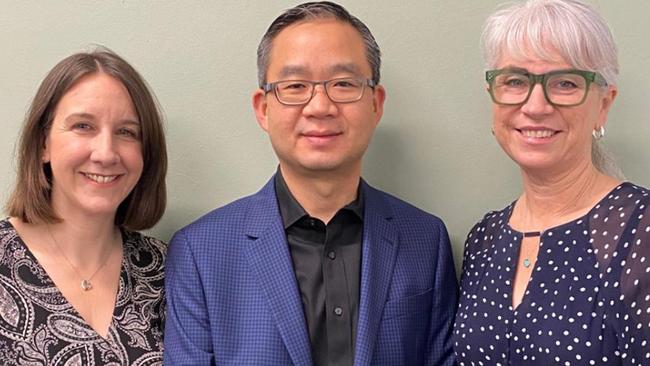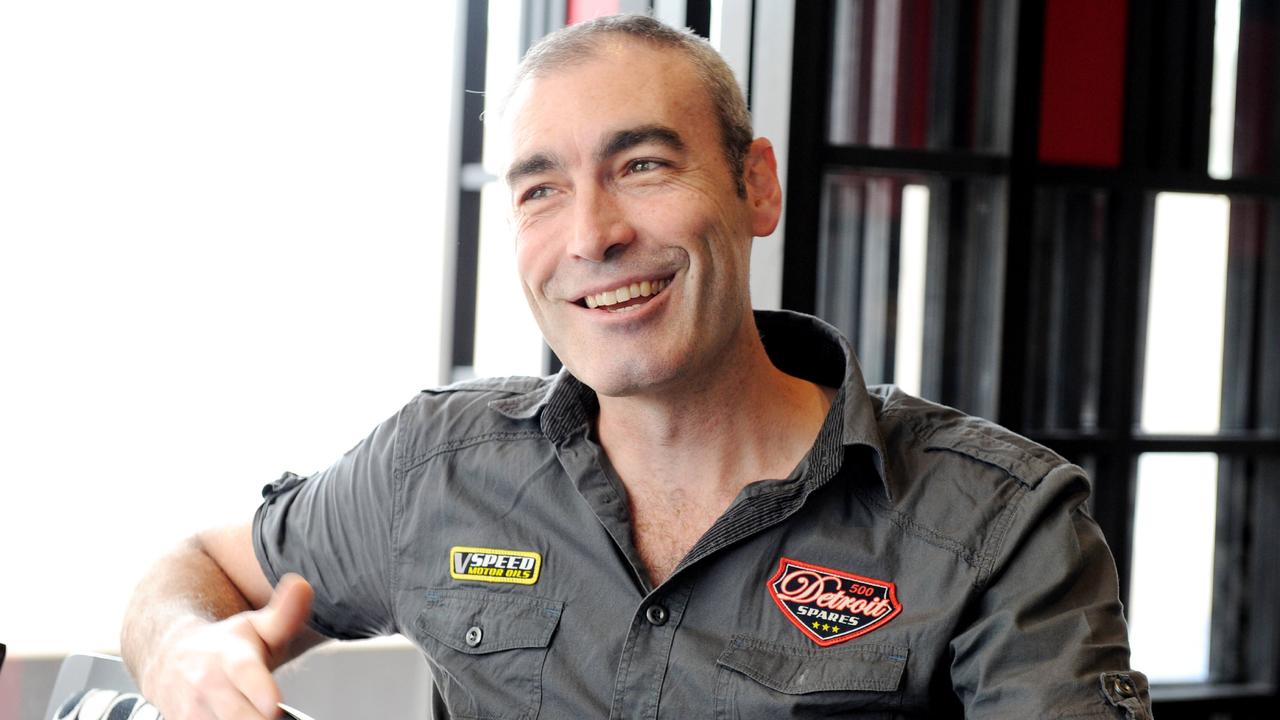Australia is finally waking up to post-Covid POTS nightmare | Jess Adamson
This is the story of three women whose lives were derailed by a condition their doctors wouldn’t even believe existed, writes Jess Adamson.
Opinion
Don't miss out on the headlines from Opinion. Followed categories will be added to My News.
This is the story of three Adelaide women who’ve had their lives turned upside by a cruel and debilitating illness.
One was a teenage performer touring the country, one a young foreign aid worker and the other, a school student who is now studying medicine.
The women have POTS, a little-known condition of the autonomic nervous system which largely affects females of child-bearing age but can be experienced by men and women of any age.
POTS, or Postural Orthostatic Tachycardia Syndrome, a type of dysautonomia, can cause fatigue, headache, gut disturbance, dizziness, pain, serious brain fog and often, a racing heart.
It’s so bad that 25 percent of patients report having to stop work or education. Yet despite much talk of it in international medical communities, it’s rarely recognised as a known condition in Australia.
50 percent of patients present to an emergency department an average six times before they’re diagnosed.
For South Australian women, a POTS diagnosis takes an average of 7 years.
Men are diagnosed in almost half that time. Why?
Because women are too often told they are “anxious” or “hysterical”. They are not believed as much as men.
It’s time to get serious about POTS because numbers are rising post-Covid.
CEO of the Australian POTS Foundation Marie-Claire Seeley can pick the moment in time she developed the condition.

“I went to stand up and I just felt this incredible rush, spinning, loss of vision, like I was going to faint, but it just never went away,” Marie-Claire says.
“To me it was absurd, I’m a country kid, I grew up on a farm in the wheat belt of Western Australia, I’m as tough as boots.”
As tough as boots, but POTS almost broke her.
For years Marie-Claire sought medical help but couldn’t find answers.
She was in and out of hospital, rapidly losing weight and regularly had a dangerously high heart rate of 150-200 bpm.
One doctor told her husband Jon that he’d married “a very young, fragile and anxious wife”.
Everything changed when Marie-Claire met Adelaide cardiologist, Professor Dennis Lau.
“He just challenged me and said, “nobody is helping these people, and they need help”, she says.
“There’s no research funding, you can’t admit them to hospital, there’s no foundation looking after them.”
Marie-Claire, a registered nurse, took on a PhD to research POTS, set up at POTS registry and in 2020, opened Australia’s first POTS clinic in Rose Park with the help of Professor Lau and Dr Celine Gallagher.
In the clinic’s first three years, 1600 patients sought assessment, men and women who’d been shuttled from doctor to doctor, with no idea what was wrong with them.
The clinic’s now a multi-disciplinary facility with two doctors, five nurses and an exercise physiologist.
POTS can be triggered by a viral infection.
When Covid-19 arrived, the clinic saw more patients than ever before, and Marie-Claire’s PhD research found 80 per cent of patients with long Covid had POTS.
That research was published in the American Journal of Medicine last year.
One of Professor Dennis Lau’s young Adelaide POTS patients has a remarkable story to tell. She’s chosen not to be identified in this article, because of the stigma surrounding the condition.
This young woman was studying year 12 as well as singing, dancing and acting in a travelling children’s entertainment company when POTS struck.
“I had headaches, severe fatigue and I kept collapsing,” she says.
“I’d go to take some steps forward and then just find myself on the floor with a racing heart.
“I pulled out of the tour, was housebound for two years, I had to use a wheelchair and my Mum had to wash my hair.”
This bright, energetic and happy young woman was living a nightmare. Doctor after doctor turned her away. She couldn’t work, study or exercise because of intense pain.
She trialled epilepsy medication, opioids and cannabis oil to manage the symptoms with no real success.
Her mother, desperate for answers, pleaded with her to see Professor Lau after reading about his work.
After years of being dismissed, the young woman was sceptical, but the appointment with Dr Lau changed her life.
“He confirmed I had pretty severe POTS and my heart was working way too hard,” she says.
“I just burst into tears, I cried and so did Mum, I was shaking. I think it’s the validation. They were able to explain why I felt like I did and told me they had relief options.
“Both of my parents have been incredible in the sense that they’ve never questioned my experience. They’ve gone to every appointment, with brain fog I would sit there half awake and confused.
“It should not have taken six and a half years to be diagnosed.
“I went through a huge grieving process afterwards, I didn’t have to lose 6 and a half years.”
With the help of dieticians, exercise physiologists and medication, that young woman now has her life back.
The 26-year-old is studying full time and two weeks ago, she left Adelaide for a long-awaited holiday to Europe.
“I was going to travel when I was 18 or 19 so this has been eight years in the making,” she says.
“My fatigue is so much less, my pain is so much less, my heart is settled, it was an immediate change. I’m forever grateful I decided to give it one more shot.”
Her story mirrors that of Greg Page, the Yellow Wiggle, forced to give up touring in 2006 because a fainting condition.
He too had a form of dysautonomia.

First year medicine student Annabelle developed POTS when she was 18, back in 2017.
She’s recently been researching the condition, observing more than 400 local patients.
“Just seeing the variety of symptoms and the different severity that people have is quite phenomenal,” Annabelle says.
“Some have required IV treatment to help relieve their symptoms, some have had to start using mobility aids. I’ve seen people who’ve had to go part time or stop work completely.”
The rising number of POTS patients in the wake of Covid has shown us we need action.
I’m no medical expert but I’ve read and heard enough in recent months to know we should be doing more.
We need more research, more education for doctors and clinicians and most importantly, treatment options that all South Australians can access.
It’s not right that a private clinic in Rose Park is accessible only to those with money.
POTS medications aren’t yet on the PBS, but they should be.
Patients like Annabelle are paying more than $100 a month to alleviate their symptoms.
Marie-Claire Seeley is this week returning from Poland where she’s been speaking at an international medical conference on POTS. She is a leader in her field, along with Professor Dennis Lau.
After years of unsuccessfully seeking meetings with Government leaders, confirmation this month that Health Minister Chris Picton wants to hear more.
It’s good news.
Momentum is growing and South Australia can lead the nation on POTS to the benefit of thousands of patients who deserve better.






